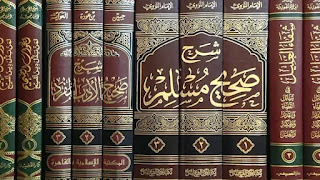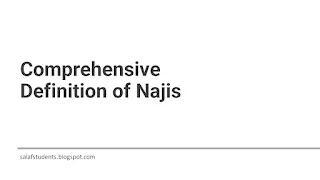Understanding the Prohibition of Writing the Words of the Prophet Muhammad
Books of hadith in all their varieties, which we can find today, number in the hundreds and even thousands. All of these are the result of the painstaking efforts of scholars, especially the first three generations: the companions of the Prophet Muhammad, the tabi'in, and the tabi'ut tabi'in. They were the ones who first initiated intellectual work in the field of hadith. Then that spirit was inherited by subsequent generations of scholars.
In connection with this, it is very important to know what the actual ruling is on writing hadith. This question may feel cliché and can be easily answered logically. Simply put, if writing hadith were forbidden (haram), we wouldn't find the various books of hadith we have today. But what is the scholarly explanation?
The theme of the ruling on writing hadith is almost always presented in the majority of books on the science of hadith. This is evidence that the topic is important to know. Imam Muslim in his Sahih collection narrates the hadith prohibiting the writing of the sayings of the Prophet Muhammad.
لَا تَكْتُبُوا عَنِّي، وَمَنْ كَتَبَ عَنِّي غَيْرَ الْقُرْآنِ فَلْيَمْحُهُ
It means, "Do not write anything from me except the Quran. Whoever writes from me other than the Quran, then erase it." (Narrated by Muslim). (Muslim bin Al-Hajjaj, Sahih Muslim, [Beirut: Dar Thuqin Najah, 2012], vol. VIII, page 229).
This hadith explains how the Prophet Muhammad prohibited his companions from writing what he conveyed, except for the Quran. However, this hadith is not the only one that speaks about whether it is permissible to write the sayings of the Prophet Muhammad.
There are at least two other hadiths with the same theme. First, a hadith narrated by Imam Abu Dawud:
عن عبدِ الله بن عمرو، قال : كنتُ أَكْتبُ كلَّ شيءٍ أسمعُهُ مِن رسولِ اللَّهِ صلَّى اللَّهُ عليهِ وسلَّمَ أريدُ حفظَهُ فنَهَتني قُرَيْشٌ عن ذلِكَ وقالوا : تَكْتُبُ ورسولُ اللَّهِ صلَّى اللَّهُ عليهِ وسلَّمَ يقولُ في الغضَبِ والرِّضا فأمسَكْتُ حتَّى ذَكَرتُ ذلِكَ لرَسولِ اللَّهِ صلَّى اللَّهُ عليهِ وسلَّمَ فقالَ : اكتُب فوالَّذي نَفسي بيدِهِ ما خرجَ منهُ إلَّا حقٌّ
Second, a hadith narrated by Imam Al-Bukhari. During the liberation of the city of Mecca (Fathu Makkah), the Prophet Muhammad addressed the companions. At the end of the address, one of the companions named Abu Syah interjected:
اكْتُبْ لي يا رَسولَ اللَّهِ. فَقالَ رَسولُ اللَّهِ صَلَّى اللهُ عليه وسلَّمَ: اكْتُبُوا لأبِي شَاهٍ
In the last two hadiths, the Prophet Muhammad actually granted the request of the companions to write down the hadiths. This contrasts with the first hadith. Such conditions in the science of hadith are known as "mukhtalaful ahadith," which means contradictory hadiths.
So how do we draw conclusions about the ruling from the above hadiths? Al-Hafizh Ibnu Hajar provides several options:
- The prohibition on writing hadith applies when the transmission of the Quran to the Prophet Muhammad had not yet been completed. After all the verses of the Quran were conveyed to him, this prohibition no longer applies.
- The intention of the prohibition is to write hadith on the same medium as the Quran. For example, if hadith and the Quran are written on the same board, it is prone to mixing.
- There is abrogation. Initially, indeed, the Prophet Muhammad prohibited writing his sayings. Then, after the Quran was "established" and there was no fear of it being mixed with other things, he allowed it. This permission also nullifies the prohibition he had previously conveyed;
- The prohibition applies specifically to those who are lazy to memorize.
- Some scholars say that the hadith about the prohibition of writing hadiths is mauquf. In other words, it was not the Prophet Muhammad who said it, but a companion who narrated it. In this case, it was Abu Sa'id Al-Khudri. (Ahmad Ibn Hajar, Fathul Bari, [Egypt: Maktabah Salafiyyah, 1970], vol. I, page 208).
From the above options, Ibn Hajar himself considers the third option to be the strongest. This is the scholarly explanation regarding the legality of writing the sayings of the Prophet Muhammad.
Related: Hadith About Tayammum




